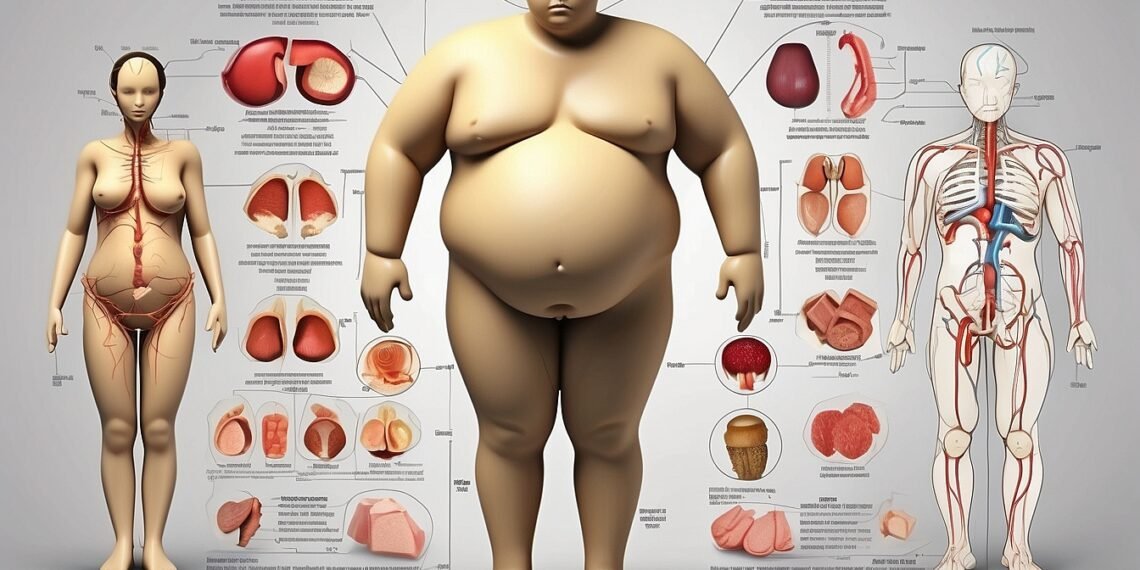Direct and indirect mechanisms: Excess weight puts added stress on your lower back, leading to strain and pain. This can also contribute to muscle weakness and poor posture, further exacerbating the problem.
Treatment options:
- Weight loss: Even moderate weight loss can significantly reduce lower back pain. Consult a healthcare professional or registered dietitian for a personalized plan.
- Exercise: Low-impact activities like walking, swimming, or yoga can help strengthen core muscles and improve flexibility, reducing pain and supporting weight management.
- Heat therapy: Applying heat to the affected area with hot water bottles, heating pads, or warm compresses can relax muscles and improve blood flow, alleviating pain.
- Stretching and gentle exercise: Gentle stretches and exercises specifically targeting the lower back and core can improve flexibility and reduce pain.
- Maintaining good posture: Being mindful of your posture while sitting, standing, and walking can significantly reduce strain on your back. Consider using ergonomic furniture and supports.
Definitions:
- Lower back: The lumbar region of the spine, located between the ribs and the pelvis.
- Core muscles: The muscles in your abdomen and lower back that provide support and stability for your spine.
- Flexibility: The ability of your muscles and joints to move through a full range of motion.
When to see a doctor:
- If pain is severe, persistent, or worsens despite home remedies.
- If accompanied by numbness, tingling, weakness, or difficulty controlling bladder or bowel movements.
- If you experience any radiating pain down your legs.
- If you have concerns about your weight or overall health.
Additional resources:
- PDF: https://orthoinfo.aaos.org/en/diseases–conditions/low-back-pain/
- YouTube video: https://m.youtube.com/watch?v=CdCClhtKH2Q
Follow-up questions about lower back pain from excess weight:
Pain specifics:
- How would you describe the pain (sharp, dull, burning, aching)?
- Where is the pain located specifically? Does it radiate anywhere else?
- What is the intensity of the pain on a scale of 1-10?
- When did the pain start? Is it constant or intermittent?
- What makes the pain worse or better?
- Have you experienced any other symptoms besides pain?
Relationships:
- Does the pain affect your daily activities or relationships?
- How does the pain impact your work or hobbies?
- Are there any stressful events or changes in your life related to your weight that might be contributing to the pain?
Treatment and management:
- What have you tried so far to relieve the pain?
- Have you discussed weight management options with a doctor or registered dietitian?
- Are you open to trying physical therapy or other alternative therapies?
- Are you comfortable incorporating regular exercise into your routine?
- Are there any challenges or limitations you face when managing your weight?
Other potential causes:
- Do you have any pre-existing back problems?
- Have you recently experienced any injuries to your back?
- Are there any other factors that might be contributing to the pain, such as poor posture, lack of activity, or smoking?
- Have you discussed your pain with your doctor to rule out any underlying medical conditions?
Additional questions:
- Have you noticed any changes in your pain since gaining weight?
- Do you have any concerns about the long-term effects of excess weight on your back health?
- Do you feel motivated and supported in your efforts to manage your weight and reduce pain?
It’s important to be as specific as possible when answering these questions to provide your healthcare professional with a comprehensive understanding of your situation and facilitate effective pain management and weight loss strategies.

